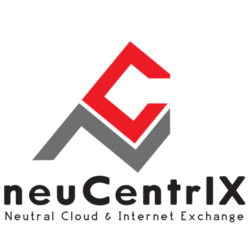
In this article we will explain the differences between colocation, cloud-only and hybrid cloud for your enterprise IT strategy. We will list the key benefits and disadvantages for each option. After reading this article you will have a better understanding, to determine which one is right for your organization.
Enterprise digital transformation strategy can be complex and expensive
With digital transformation well underway, enterprises are under pressure to select the right future-proof cloud strategy. This can be a tough strategic decision, with some serious long-term consequences. For example: How do you capture the many benefits of a public cloud, without sacrificing security and control over your own hardware, data and applications?
Re-investing in legacy enterprise data centers can be very expensive and a complex operation. That’s why many enterprises are now looking for the best compromise, between a cloud and building their own data center. An ideal solution can be colocation, which we will discuss next.
What is colocation?
Data center colocation is best summarized as renting dedicated space and power, in a data center which is managed and operated by another provider. The customer pays a monthly fee for renting space (server cabinets or square meters/feet) and power based on the usage of the equipment (reserved power and actual power usage). Customers are always in full control of their own hardware and never need to worry about maintaining the data center. This is the full responsibility of the data center provider. Colocation is great for small, medium and large enterprises, that have their own hardware or specific applications that they don’t want to use in the cloud.
Customers can rent anything from a 1/4 server cabinet up to a full cabinet – in a shared customer area or customized private area. Besides renting space and power for your own hardware, a colocation center may offer you additional dedicated or virtual servers for rent. These on demand flexible capacity servers can be rented with optional internet access.
Colocation is ideal for those enterprises, that don’t have the financial and human resources available to build, operate, manage and maintain their own data center. This is all outsourced to the data center operator. Colocation data centers are often used by enterprise customers as a backup and disaster recovery site – to complement their own in-house data center.
It is essential that a colocation partner has a detailed proactive rolling maintenance plan for the data center infrastructure for the years to come. The ideal enterprise-grade colocation provider has a strong focus on multilevel security and compliance – by owning the most relevant ISO and business continuity certifications.
Colocation can be a solid future proof solution, as enterprises can select from various connectivity providers (telco’s/carriers/internet service providers). This eliminates the risk of having a vendor lock-in with just a single connectivity provider.
For any incidents that can’t be dealt with by your own IT manager onsite, colocation customers can rely on value-added services. Such as 24x7x365 remote support by an engineer and installation services – often referred to as “hands and eyes” or “remote hands”.
What is cloud-only?
Cloud-only is an enterprise IT strategy, where all previously owned servers, applications and software are outsourced to a cloud provider (for example: Microsoft Azure, Amazon Web Services). These public cloud providers operate their own massive hyperscale data centers around the globe. They can offer almost any service, server or application on-demand. Through sheer economies of scale, they can offer everything against a monthly subscription fee to their customers. They offer many available options to flexibly upscale and downscale the customer’s IT infrastructure if their business requires it.
A cloud-only strategy can be a solution for customers that don’t have a large IT department. Or for customers that want to accelerate their growth fast – without any delay or compromise. Think of businesses that are active in e-commerce or online gaming. These customers need to be able to deploy additional compute power immediately, when the number of users increases during a particular period. For these specific customers, an in-house data center or even a colocation data center is simply not flexible enough. They absolutely need that ability to upsize and downsize whenever it is required.
On the other hand, enterprise customers may not want to host all applications and sensitive data in the public cloud. There could be certain legacy IT applications that just don’t work well in the cloud or can’t be migrated. Enterprise customers may also have serious security concerns for data breaches. For example: That cloud login credentials could get compromised or the encryption of data in the cloud can get hacked. There may be a risk for an insider threat, where a rogue employee of the cloud provider steals or deletes corporate data.
Another important point is that excellent connectivity is always required, in order to effectively run a cloud-only IT operation. There may be areas where connectivity from at least two providers for diversity reasons can’t always be guaranteed.
It may look very easy to migrate everything from your own data center to the public cloud. But once you have completed this migration, it can be very difficult to switch cloud providers in the future. Also, enterprise should note that the commercial payment model to cloud providers, is based on the actual per usage and pay-as-you-go model. So, if the monthly data consumption increases significantly over time, then so will the monthly invoice of your cloud provider. This makes it hard to forecast what the actual IT-spending will be over time.
Last but not least: Enterprises are dependent on the future IT and pricing strategy of their cloud provider. This potentially makes a cloud-only IT strategy vulnerable and less flexible, if something changes in the future. Your cloud provider decides what hardware and applications they will continue to support, not you. Prices may suddenly increase over time, making it much harder to budget for such unexpected changes.
What is hybrid cloud?
Hybrid cloud is a combination and compromise between both options we just discussed. It sits right between operating your own private cloud in a colocation data center and using a cloud-only strategy. Hybrid cloud allows enterprises to keep full control over certain hardware, sensitive data and applications, while at the same time enjoying all the benefits that the public cloud offers.
Compute power such as servers that are end-of-life and need to be replaced, can be ordered from a public cloud provider. Certain software that needs to be available everywhere, can be contracted as a SaaS-model in the public cloud (Software-As-A-Service). However, critical core enterprise IT applications and sensitive data can remain in the customer’s private cloud and own server cabinets in the colocation data center.
A hybrid cloud strategy is best for enterprises that are in transition, but need a certain degree of control and flexibility. Hybrid cloud can be a future proof strategy, as flexibility is built-in, and it is much easier to use a multi-cloud strategy without vendor lock-in. This combination offers great flexibility and “cherry-picking” for the best and most cost-effective solutions. Enterprises keep full control and are always able to visit their own space in the colocation data center. However, they are not responsible for the many investments and complex operations to keep the data center up and running.
For an effective hybrid cloud strategy, it is essential that enterprises select the right colocation data center provider that facilitates a multi-cloud strategy. The colocation provider should have low latency connections available, that can connect the enterprise customer to their preferred cloud platforms. Also, a wide variety of connectivity options should be available, to keep the enterprise platform connected and available for its end-users.
Conclusion
No matter how your enterprise IT strategy will evolve over time, we can highly recommended colocation or a combination together with hybrid cloud. Hybrid cloud in combination with colocation offer the best of both worlds: Full control over your data center, flexibility of the cloud and a future-proof scenario.
Often enterprises make a mistake by collocating with a leading international provider of colocation services. However, such providers lack true flexibility and a dedicated focus on the smaller and medium size enterprise customer. They often focus primarily on large hyperscale and wholesale customers. It can then be very difficult for enterprises to flexibly upscale and downscale their business, or if they just wish to secure some extra space and power for future expansion.
No matter how your enterprise IT strategy will evolve over time – Colocation is always future proof. Colocation can help you to mitigate risk and significantly reduce operating costs. Colocation customers can enjoy full flexibility and reliability, without any vendor lock in.
